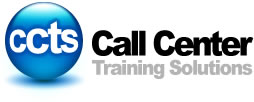Client Engagement Series – Lesson Two: Client-Engagement by Asking Great Questions
This is the second post in our four-part series, Client Engagement: How to Connect and Stay Connected.
If you have read any of our blog posts, you know that we value the skill of Discovery – asking questions. Whether we are working with an Inbound or an Outbound center, asking the right questions ± in the right way ± is almost always the skill that agents develop and master last. Most agents never really master questioning, but many use it effectively enough to make more sales.
In this post, we are looking at how our Discovery impacts Client Engagement. Used well, questioning can lock a customers attention in like very few other skills. As always, we will discuss these ideas in terms of selling and sales success.
On the surface, it would seem that any question will foster Client Engagement, but it is not so simple. Badly delivered, mechanical questions will achieve the opposite; client disengagement. Take a typical, poorly-conducted call. Right from the beginning, the agents questions are likely to be very stiff, closed-ended and unnatural. The agent will not show the interest needed to capture the clients attention. The questions will not be delivered in a way that encourage the client to answer. Clients will quickly become bored and try to terminate the call or start to take over.
Two Tips for great Client Engagement
Here are two easy ways to improve your Client Engagement.
- Ask More than Merely the Required Questions: If you have worked in call center sales for a while, you have definitely heard this from your supervisor. Dont just ask the basic questions. Get the client involved with more in-depth questions. We agree. Many sales agents will try to rush through the Discovery portion of the call as quickly as possible because they believe it pushes the client away. Consequently, these agents ask fewer questions, most of which are going to be very basic. How many are you interested in? How much do you need? What color? What size? These questions are fine, but they are not engaging. Engaging questions dig deeper. What will you be using it for? What has been your experience with this type of product so far? What are some of your priorities in making this purchase? There are dozens more. Better questions will engage the client. Questions that focus on their world, their use of the product, their current methods of living life without your product (especially if your product is a solution to lifes little messes ± learn about their messes and tell them how much your product does to solve those messes).
- Sound Curious (even Fascinated) When You Ask Your Questions: Whether you are listening to a radio program, a professionally recorded voice mail message, an audio book or anything else recorded but not visual, your ears have to do all the work to interpret the message. It would make sense that agents have to sound great when they speak with clients. When asking questions, it is paramount to Client Engagement. At a minimum, the agent must seem curious. Let me ask you, what are some of the–.
Sounding curious and interested means you must vary your voice tones. There is no way to demonstrate it in this post, but it is easy to illustrate. First, read the question below in a monotone voice ± a single pitch and tempo.
- What would you say will be the primary purposes for this device?
Boring, huh? Great (okay, not great). Now read it again ± really speak it ± and this time, vary your voice tones, beginning higher, dropping in the middle, and then coming up again at the end.
Much better, right? Now read it one more time, but this time, add a simple positioning phrase to the beginning like, You know, Im curious–.
Now that sounds the best. When we sound curious and interested, clients respond well. They like to know they are the center of our world when they are on calls with us. If we do this well while also asking better questions, our Client Engagement score will really improve and our clients will open up and provide great answers.
When selling, an engaged client is a lot more likely to buy. Our ability to capture their attention and keep it through the Discovery is no easy task, but we can improve our chances by asking better questions and showing interest in the client as we ask the questions. Even if they do not buy, their experience on the phone with us will be significantly improved for next time.

